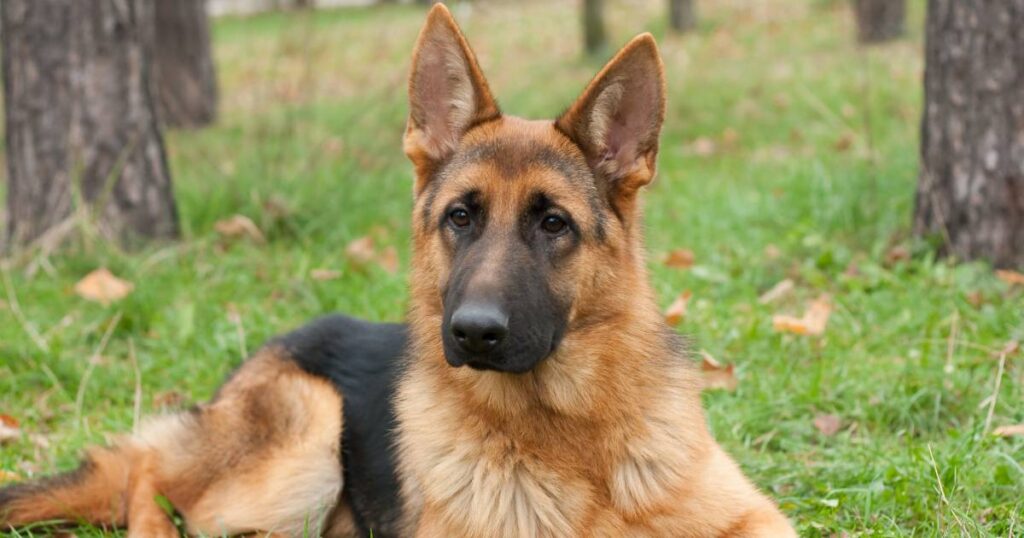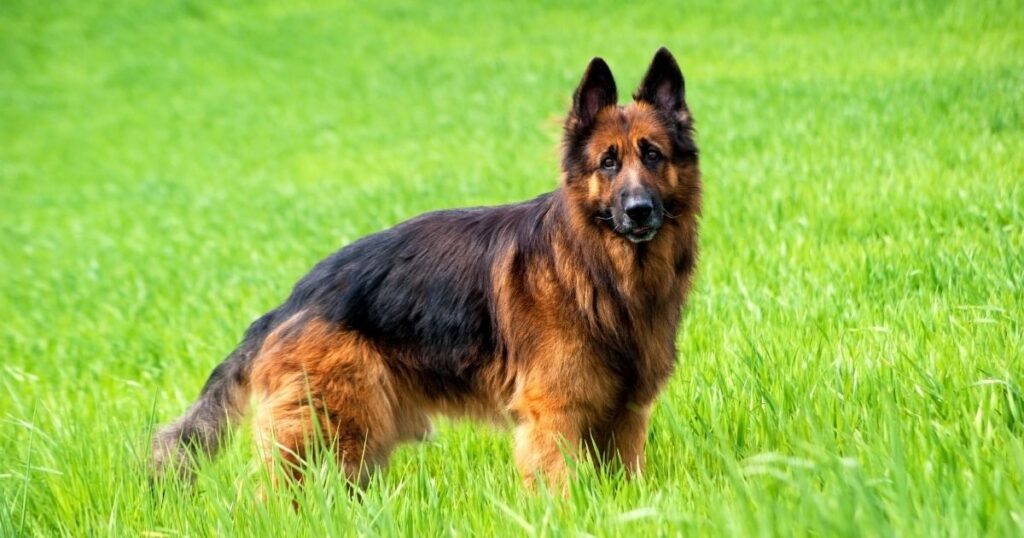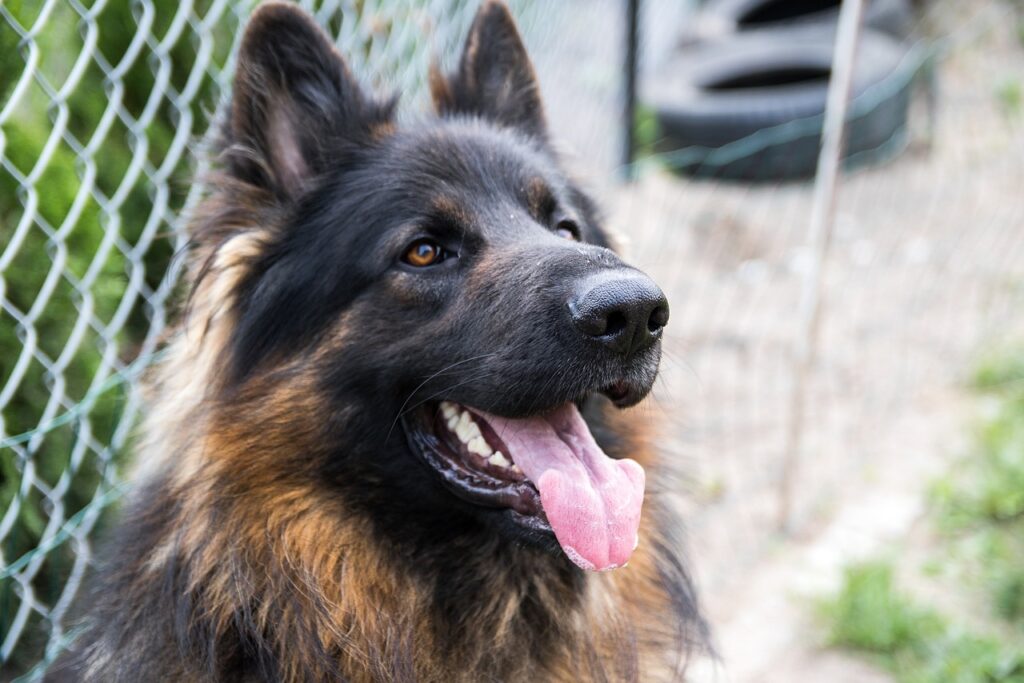Why is my German Shepherd so small
If you’ve ever looked at your beloved German Shepherd so small and wondered why they seem smaller than the typical breed standard, there are several factors to consider. Firstly, genetics play a significant role in determining your dog’s size. Just as in humans, traits are inherited from their parents.
If both the mother and father of your German Shepherd were on the smaller side, it’s highly likely that your pup will follow suit. Additionally, if your dog’s lineage has a history of German Shepherd so small, this genetic predisposition can influence their size.
Secondly, nutrition is a critical factor in your dog’s growth and development. Ensuring your German Shepherd receives a well-balanced diet with the appropriate nutrients is essential.
A lack of proper nutrition or insufficient food intake can hinder their growth and result in a smaller stature. Consulting with your veterinarian to create a tailored diet plan is advisable.
Moreover, health issues can also impact a dog’s size. Certain medical conditions or infections can interfere with your German Shepherd’s so small growth.
If you suspect that your dog’s size is related to health concerns, it’s crucial to schedule regular check-ups with your veterinarian for a thorough evaluation and potential treatment.
Lastly, age is a factor to consider. German Shepherds, like many dog breeds, continue to grow and develop until they reach their full maturity, which typically occurs around 2 years of age.
If your pup is still young, their smaller size might simply be due to their ongoing development. In conclusion, when trying to understand why your German Shepherd so small appears smaller than expected, it’s essential to take into account genetic factors, nutrition, potential health issues, and their age.
Every dog is unique, and while some may not reach the imposing size commonly associated with the breed, they can still be wonderful companions and loyal members of your family.
When do German Shepherds stop growing?
German Shepherds are known for their impressive size and stature, but when do they actually stop growing? Understanding the growth timeline of these magnificent dogs is essential for their proper care and development. Generally, German Shepherds so small reach their full height between 18 to 24 months of age.
However, their bodies may continue to fill out and gain muscle until they are around 3 years old. It’s important to note that individual growth rates can vary, and genetics play a significant role.
Proper nutrition, exercise, and regular veterinary check-ups are crucial during this period to ensure healthy growth and development.
So, when it comes to your German Shepherd so small , patience and attentive care will help them reach their full potential and become the magnificent companion they are known to be
Most Common Reasons Why Your German Shepherd is so Small
If you’ve ever wondered why your German Shepherd seems smaller than others of the breed, you’re not alone. There are several common reasons for this, starting with genetics.
Genetics play a significant role in determining a dog’s size, so if your German Shepherd’s parents were on the smaller side, it’s likely your pup inherited those genes.
Diet is another crucial factor. Inadequate nutrition or an unbalanced diet can stunt your dog’s growth. Ensuring your German Shepherd receives the right nutrients and proper feeding is essential for their development.
Health issues can also lead to smaller stature. Certain medical conditions, parasites, or malabsorption disorders can affect their growth.
Other factors include breed subtype, exercise routine, early spaying/neutering, environmental factors, and stress levels. Additionally, some German Shepherds are late bloomers and may reach their full size later than expected.
In summary, the size of your German Shepherd can be influenced by genetics, diet, health, and various other factors. Understanding these common reasons can help you provide the best care for your furry companion. Following are the common reasons:
- Genetics
- Diet
- Health Issues
- Parasitic Infections
- Breed Subtype
- Exercise Routine
- Spaying/Neutering Early
- Environmental Factors
- Puppy Mill Origin
- Vaccination Schedule
- Stress and Anxiety
- Late Bloomer
- Dwarfism Or Achondroplasia
Genetics:
When it comes to understanding why some German Shepherds are smaller in size, genetics plays a pivotal role. Just like humans inherit traits from their parents, dogs, including German Shepherds, inherit genetic characteristics that can influence their size.
If both the parents of a German Shepherd were on the smaller side or if there’s a history of smaller German Shepherds in their lineage, it’s highly likely that the pup will follow suit.
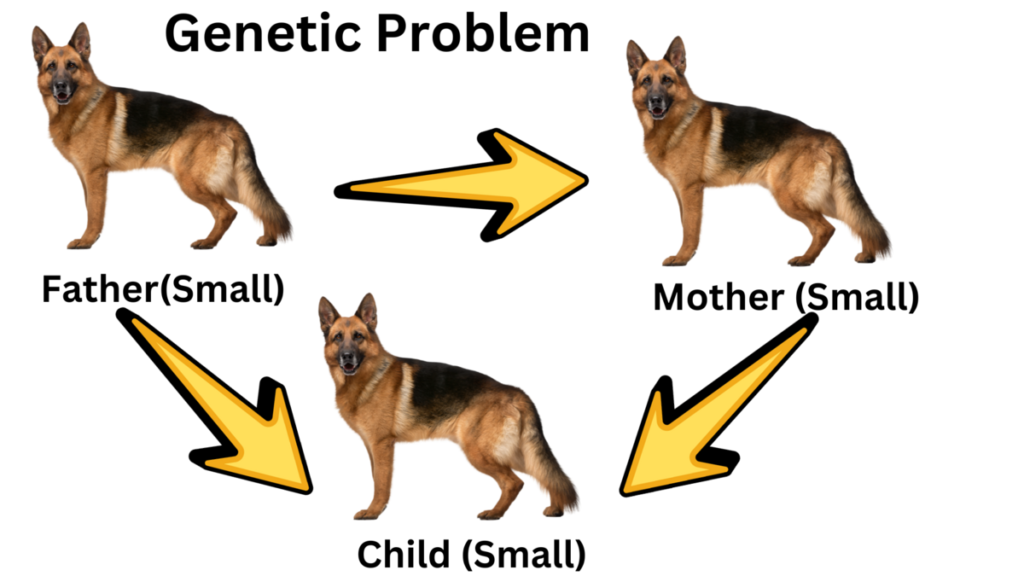
Genetics sets the foundation for a dog’s physical attributes, including their size. While it’s not the only factor at play, it is a fundamental one.
So, if you find your German Shepherd is smaller than expected, remember that genetics can be a significant contributor to their size. Understanding the genetic aspect of your dog’s size can help you appreciate their uniqueness and tailor their care to their individual needs.
Diet:
If you’ve ever wondered why your German Shepherd is smaller than expected, the answer may lie in their diet. Diet plays a crucial role in a dog’s growth and overall development. For German Shepherds, a well-balanced and nutritionally rich diet is essential to reach their full potential in terms of size.
Inadequate nutrition or an imbalanced diet can result in stunted growth. Ensuring that your German Shepherd receives the right nutrients, including proteins, vitamins, and minerals, is vital. Consult with your veterinarian to create a customized diet plan tailored to your dog’s specific needs.
Furthermore, it’s not just about what they eat but also how much they eat. Ensuring your dog receives the appropriate amount of calories is equally important. Underfeeding can lead to smaller stature, while overfeeding can cause excessive weight gain, which can also affect their size.
In conclusion, if your German Shepherd is smaller than expected, it’s essential to evaluate their diet. Providing a nutritionally balanced diet with the right amount of calories can help support their growth and ensure they reach their optimal size.
Health Issues:
When it comes to our beloved small German shepherd companions, their health is of paramount importance. These pint-sized pups may steal our hearts with their adorable looks and playful demeanor, but they are not immune to health issues that can significantly impact their quality of life.
One of the most prevalent health issues in small German shepherds is hip dysplasia. This condition occurs when the hip joint doesn’t develop properly, leading to discomfort, pain, and reduced mobility. It can be a source of great suffering for these loyal dogs.
It’s essential to keep a close eye on your furry friend’s gait and behavior, as early detection of hip dysplasia can make a world of difference in terms of treatment options and overall well-being.
Allergies are another common concern for small German shepherds. Just like humans, these dogs can develop allergies to various triggers. Food allergies, environmental allergens like pollen or dust, and even flea bites can cause itching, skin problems, and general discomfort.
These allergies can disrupt their daily lives and lead to chronic issues if left untreated. Regular check-ups with a veterinarian can help identify and manage allergies effectively, ensuring your pup enjoys a more comfortable and itch-free existence.
While health issues can be a concern, there are proactive steps you can take to ensure your small German shepherd stays in the best possible shape. Regular exercise is crucial for maintaining their muscle tone and overall fitness.
A balanced diet tailored to their specific needs can help address potential food allergies and support their health. Additionally, routine vet visits for check-ups and vaccinations are essential components of their overall well-being.
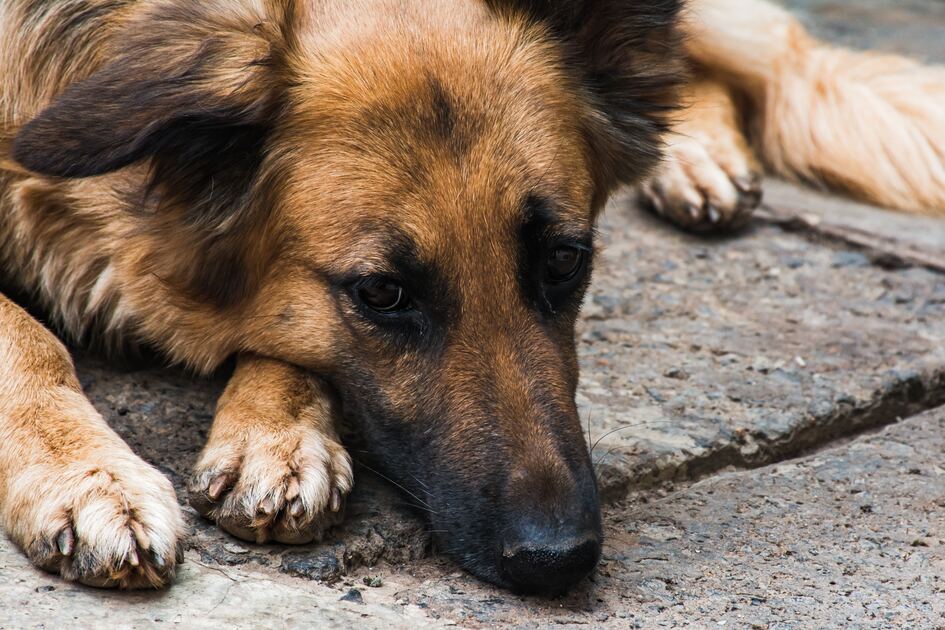
In conclusion, health issues indeed play a pivotal role in the lives of our cherished small German shepherds. By staying vigilant, addressing issues promptly, and providing them with the love, care, and attention they deserve, you can help your furry friend lead a happy and healthy life.
So, let’s commit to giving our pint-sized companions the best possible care and ensure they thrive in every way! 🐶💪
Parasitic Infections:
When it comes to the well-being of our cherished small German shepherd companions, one critical aspect to consider is the role that parasitic infections can play in their health.
These pint-sized pups, known for their boundless energy and affectionate nature, are not immune to the threats posed by various parasites that can impact their overall quality of life.
Fleas and ticks are among the most common parasites that can affect small German shepherds. These tiny yet persistent nuisances can lead to itching, discomfort, and even the transmission of diseases.
Maintaining regular grooming routines and using effective preventive treatments are essential steps to keep these pests in check.
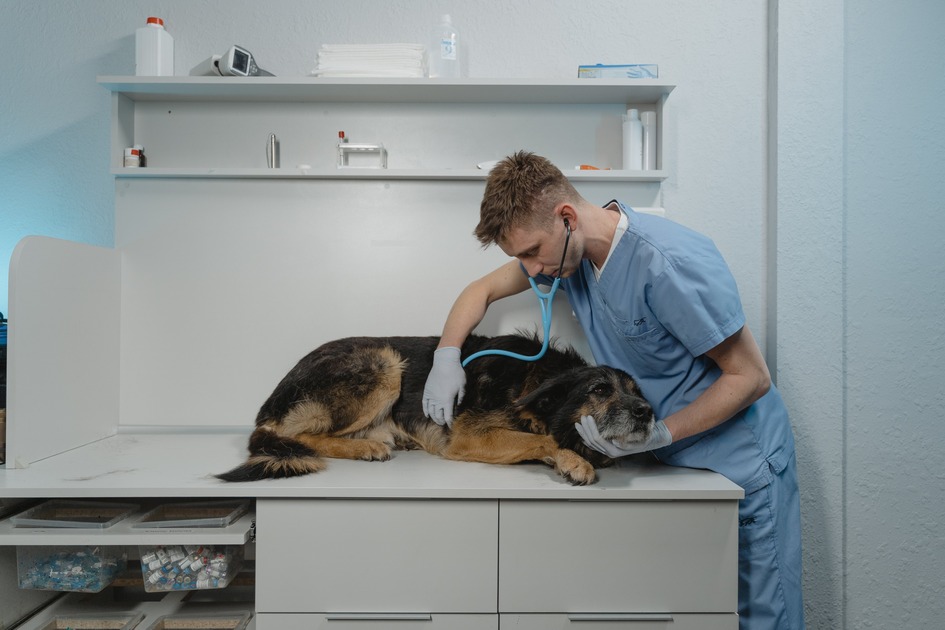
Intestinal worms, including roundworms and tapeworms, can silently invade a small German shepherd’s digestive system. These parasites can cause digestive issues and malnutrition if left unchecked. Regular deworming is crucial to ensure your furry friend’s digestive health and overall well-being.
Heartworm is a particularly ominous threat that can affect small German shepherds. Transmitted through mosquito bites, these worms can take residence in the heart and lungs, leading to severe health complications and, in some cases, fatalities.
Proactive measures such as administering heartworm medication are vital to safeguard your pup’s heart health. To safeguard the health and happiness of your German shepherd so small, it’s imperative to take proactive measures against parasitic infections.
Regularly inspecting your dog for fleas and ticks, maintaining a clean living environment, and following a veterinarian-recommended parasite prevention plan are integral in keeping these pests at bay.
Parasitic infections do indeed play a significant role in the lives of small German shepherds. However, with dedicated care and vigilance, you can shield your beloved companion from the challenges posed by these parasites.
By staying proactive and adhering to your veterinarian’s guidance, you’ll ensure that your pint-sized shepherd thrives in good health and enjoys a life free from the burdens of parasitic invaders. Let’s commit to keeping our loyal furry friends safe and thriving!
Breed Subtype:
Small German shepherds are a delightful breed subtype that brings their unique characteristics and charm to the world of canine companionship. While German shepherds are renowned for their intelligence, loyalty, and versatility, the small subtype offers a distinct appeal.
These pint-sized pups retain the intelligence and loyalty of their larger counterparts but come in a more compact package. They are well-suited for individuals or families with limited space, making them an excellent choice for apartment living.

Small German shepherds thrive on affection and exercise, and their manageable size allows for easier handling during walks and training sessions. While they may not have the imposing stature of standard German shepherds, their role in providing companionship, security, and endless joy to their owners is just as significant.
So, whether you’re a first-time dog owner or a seasoned enthusiast, the small German shepherd subtype can play a unique and fulfilling role in your life
Exercise Routine:
Exercise routines play a pivotal role in the well-being of small German shepherds. These energetic and intelligent pups require regular physical activity to stay happy and healthy. Engaging in activities like daily walks, play sessions, and interactive games not only helps them burn off excess energy but also stimulates their minds.
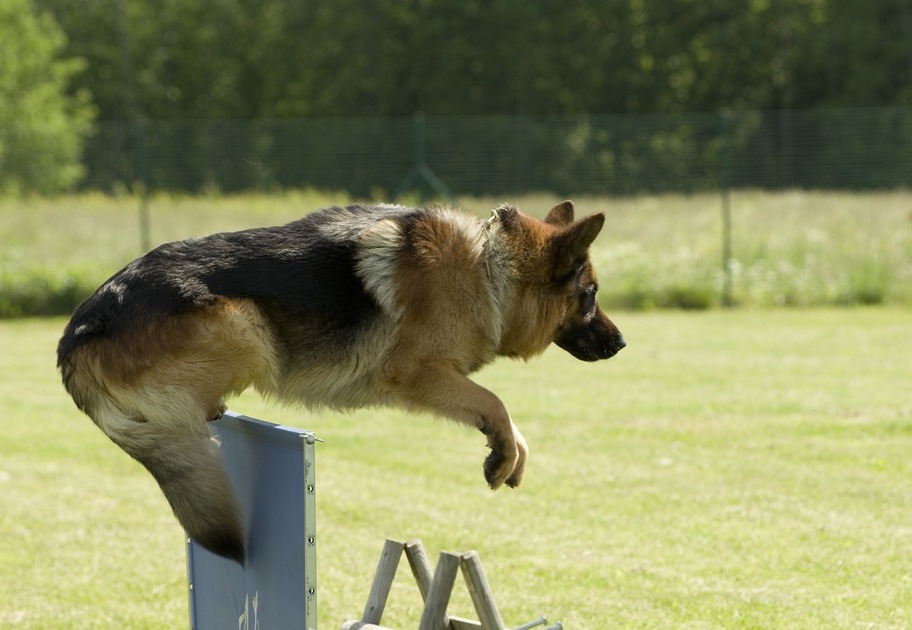
German shepherd so small thrive on mental and physical challenges, making obedience training and agility exercises ideal for their overall development. Maintaining a consistent exercise routine also prevents boredom and destructive behaviors that can arise when they are not adequately stimulated.
So, if you’re considering bringing a German shepherd so small into your life, be prepared to embrace an active lifestyle together, as exercise is a vital component of their well-being
Spaying/Neutering Early:
Spaying or neutering early in a German shepherd so small life plays a crucial role in their overall health and well-being. These procedures, typically performed between six and nine months of age, offer several benefits.
Spaying, which is the removal of a female dog’s ovaries and uterus, helps prevent unwanted pregnancies and reduces the risk of certain reproductive-related health issues. Neutering, the removal of a male dog’s testicles, can curb undesirable behaviors such as aggression and roaming.
It also helps prevent testicular cancer and reduces the risk of prostate problems. Early spaying and neutering can contribute to a longer and healthier life for your German shepherd so small and can also help control the population of unwanted dogs.
Consult with your veterinarian to determine the best timing for these procedures to ensure your furry friend’s well-being.
Environmental Factors:
Environmental factors play a significant role in the health and well-being of German shepherd so small. These adaptable and loyal companions can be affected by their surroundings in various ways.
A comfortable living environment with appropriate temperature and ventilation is essential, as small German shepherds are sensitive to extreme heat and cold. Providing a safe and secure outdoor space for play and exercise is equally important.
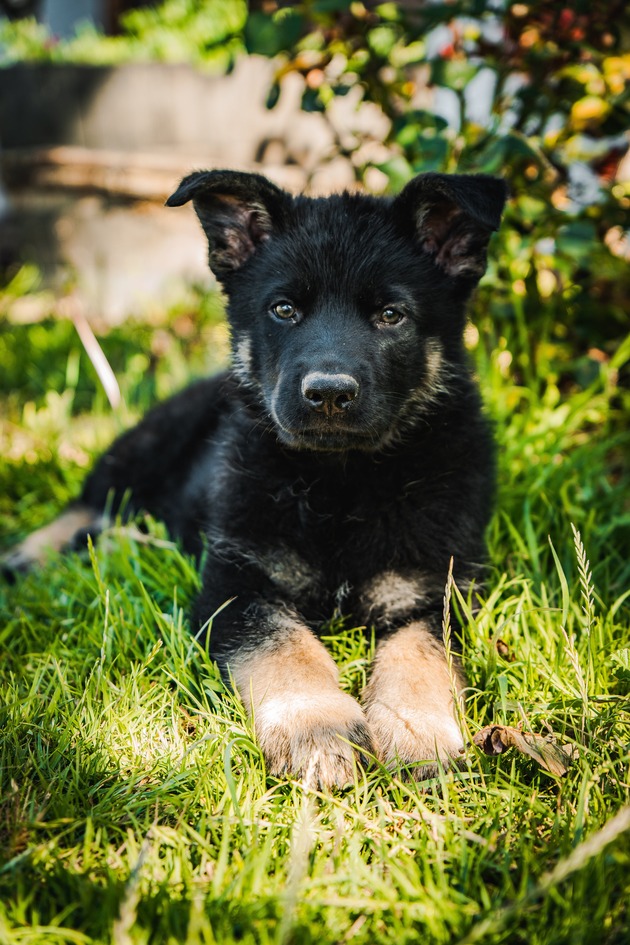
Exposure to toxic substances, such as certain plants, chemicals, or foods, should be minimized to protect their health. Socialization and exposure to different environments can help them develop into well-rounded dogs.
By being mindful of their surroundings and ensuring a safe and enriching environment, you can contribute to the happiness and longevity of your German shepherd so small.
Puppy Mill Origin:
The origin of a small German shepherd can significantly impact their well-being, and one concerning aspect is puppy mills. These commercial breeding facilities prioritize profit over the health and welfare of dogs.
Small German shepherds born in puppy mills often face a host of health and behavioral issues due to overcrowded and unsanitary conditions. These pups may not receive proper socialization or veterinary care, leading to long-term problems.
When choosing a German shepherd so small, it’s crucial to consider reputable breeders or adoption from rescue organizations. By doing so, you can provide a loving home and a chance at a healthier and happier life for these loyal and loving companions
Vaccination Schedule:
The vaccination schedule plays a crucial role in ensuring the health and well-being of German shepherd so small. These intelligent and loyal pups, like all dogs, need proper immunization to protect them from potentially life-threatening diseases.
Vaccines are essential for preventing common canine illnesses, including distemper, parvovirus, and rabies. A well-structured vaccination plan, recommended by a veterinarian, helps build immunity and shields your German shepherd so small from these health risks.
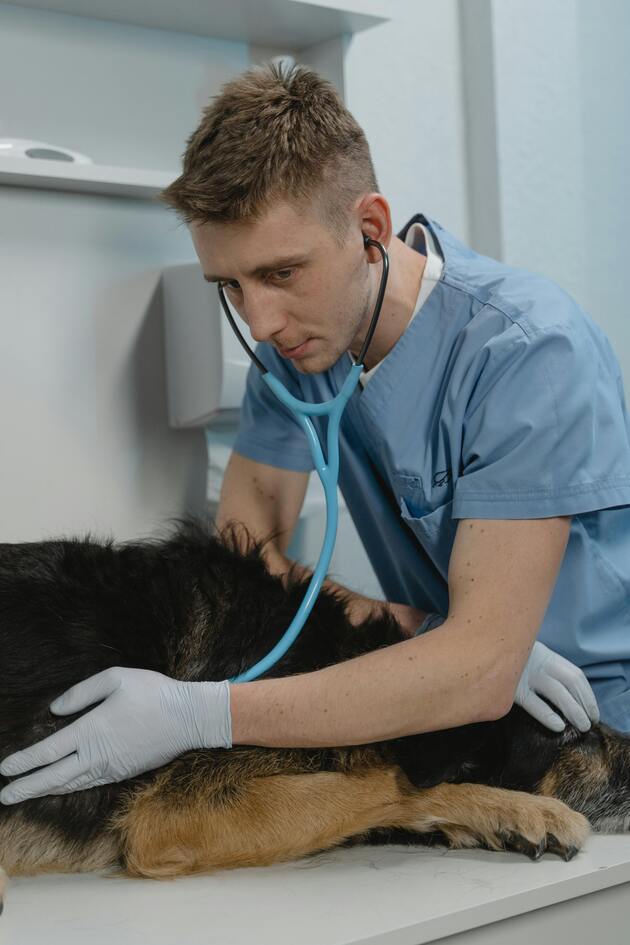
Staying up-to-date with vaccinations is not only a responsibility but also a way to ensure your furry friend enjoys a long and healthy life. So, consult with your vet to establish a vaccination schedule tailored to your German shepherd so small specific needs, and give them the protection they deserve
Stress and Anxiety:
Stress and anxiety can play a significant role in the lives of German shepherd so small. These intelligent and loyal dogs are sensitive to their environments and the emotions of their owners. Changes in routine, loud noises, or unfamiliar situations can trigger stress in these pups.
Additionally, separation anxiety can be a common challenge, leading to destructive behaviors when left alone. Recognizing and addressing stress and anxiety is vital for the well-being of German shepherd so small.
Providing a secure and structured environment, regular exercise, and positive reinforcement training can help alleviate these concerns. Moreover, seeking guidance from a professional dog trainer or behaviorist can be invaluable in helping your furry friend lead a calmer and happier life.
By understanding and managing stress and anxiety, you can ensure your German shepherd so small thrives in both body and spirit.
Late Bloomer:
Being a “Late Bloomer” can indeed play a role in the development of German shepherd so small. These pups, known for their intelligence and loyalty, may not always mature as quickly as other breeds.
While some dogs reach their full size and potential at a young age, German shepherd so small often continue to grow and develop well into their second year of life. This delayed maturation can be attributed to their unique genetics and characteristics.
It’s essential for owners to be patient and provide consistent training and care during this period. German shepherd so small may require extra time to fully showcase their intelligence and obedience, but the results are often worth the wait.
Embracing the journey of a “Late Bloomer” can lead to a deep and rewarding bond with these remarkable canine companions
Dwarfism Or Achondroplasia:
Dwarfism or achondroplasia can play a role in the unique characteristics of German shepherd so small. Unlike their standard-sized counterparts, these dogs exhibit a genetic mutation that results in shorter limbs and a distinct appearance.
While dwarfism can lead to a more compact stature, it doesn’t diminish their intelligence, loyalty, or overall quality as companions. Small German shepherd so small with achondroplasia may have specific care needs, such as joint health considerations, due to their shorter legs.
However, they can lead happy and fulfilling lives with proper care and attention from their owners. Embracing their unique physical attributes adds to the charm of these pint-sized pups and highlights the diversity within the breed
How can I increase my German Shepherd size?
Increasing the size of your German Shepherd so small is a common concern among dog owners looking to enhance their pet’s physical appearance. It’s important to note that the size of a German Shepherd is primarily determined by genetics, and there are limits to what can be achieved naturally.
However, there are several ways to help your German Shepherd so small reach its full potential size in a healthy manner. First and foremost, ensure a balanced and nutritious diet that meets your dog’s specific needs, especially during the growth stages.
Regular exercise is essential to promote muscle development and overall health. Providing proper veterinary care, including regular check-ups, can address any underlying health issues that may be affecting growth. Remember, patience is key, as German Shepherd so small typically reach their full size by 18 to 24 months of age.
Artificial methods to increase size are not recommended, as they can be harmful to your pet’s health. Focusing on a healthy lifestyle and responsible breeding practices will ultimately help your German Shepherd thrive and reach its optimal size naturally.
At what are do German Shepherd so small get big?
German Shepherds are renowned for their impressive size and stature, but at what age do they reach their full size? Understanding the growth timeline of these remarkable dogs is essential for their proper care and development.
Typically, German Shepherd so small start to get bigger rapidly during their first year, with the most significant growth occurring between 6 and 9 months of age. However, their bodies may continue to fill out and gain muscle until they are around 3 years old.
It’s important to note that individual growth rates can vary, and genetics play a significant role in determining their ultimate size. To support their growth and development, provide a well-balanced diet, regular exercise, and routine veterinary check-ups.
By staying attentive to their needs during this critical period, you can ensure that your German Shepherd reaches its full potential size and becomes the magnificent companion they are known to be
Can I speed up my German Shepherd’s growth?
Many German Shepherd owners wonder if they can accelerate their dog’s growth, but it’s important to recognize that a dog’s growth is primarily determined by genetics and natural processes.
Trying to artificially speed up a German Shepherd’s growth can be detrimental to their health and well-being. Instead, focus on providing a healthy and balanced diet that meets their nutritional needs, especially during their growth stages.
Regular exercise is essential to promote muscle development and overall health but should be appropriate for their age and size. Responsible breeding practices also play a role in a dog’s growth potential.
Consulting with a veterinarian for guidance on your specific German Shepherd’s growth and development is always a good idea. Ultimately, patience and proper care are the keys to ensuring that your German Shepherd reaches its full size and potential in a healthy and natural way
Normal body weight and calories for female German Shepherd so small
Determining the normal body weight and calorie requirements for a female German Shepherd is essential for their overall health and well-being. On average, adult female German Shepherds so small typically weigh between 50 to 70 pounds (23 to 32 kilograms).
However, individual variations exist based on factors like genetics, activity level, and metabolism. To maintain a healthy weight, it’s crucial to provide the right amount of calories. A general guideline is to feed around 1,200 to 1,600 calories per day for a moderately active female German Shepherd.
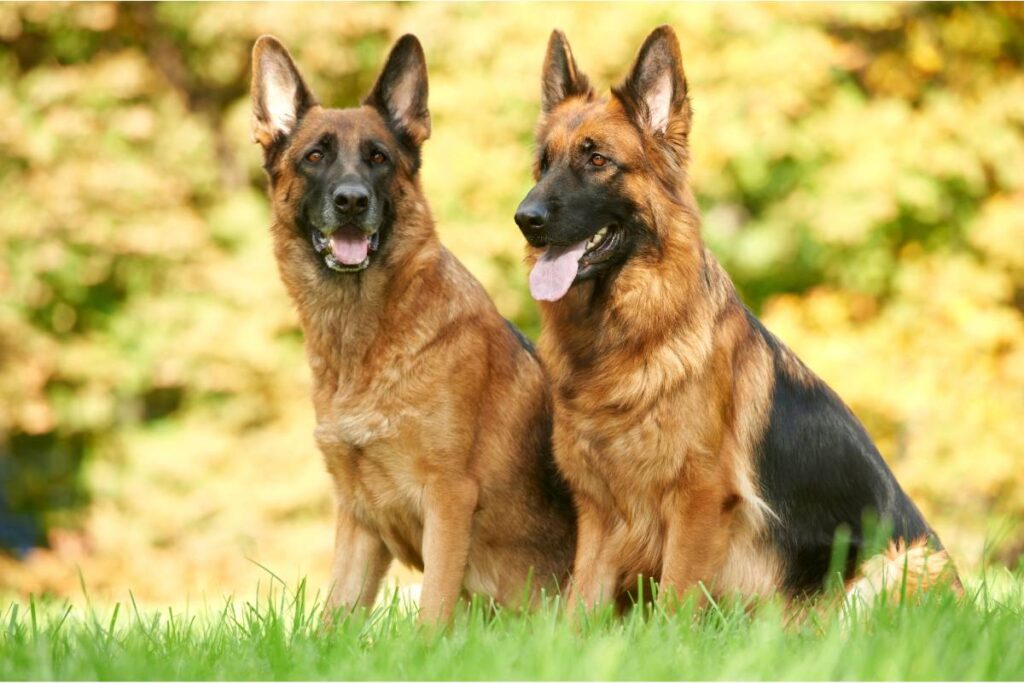
A well-balanced diet, portion control, and regular exercise are key factors in maintaining an ideal body weight for your female German Shepherd so small.

